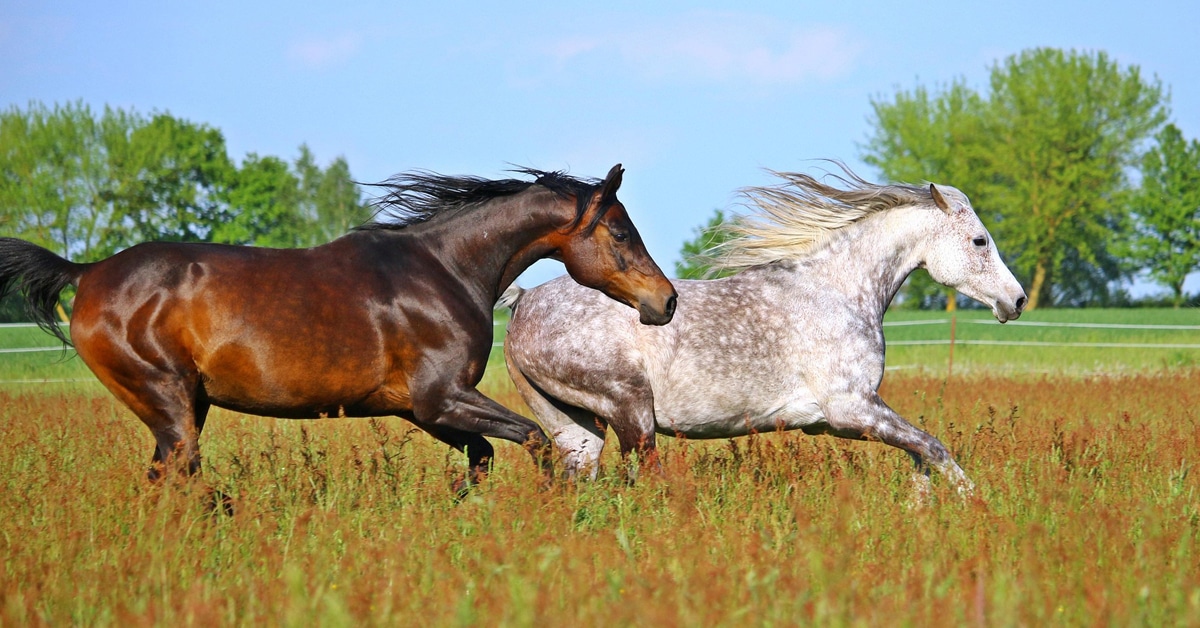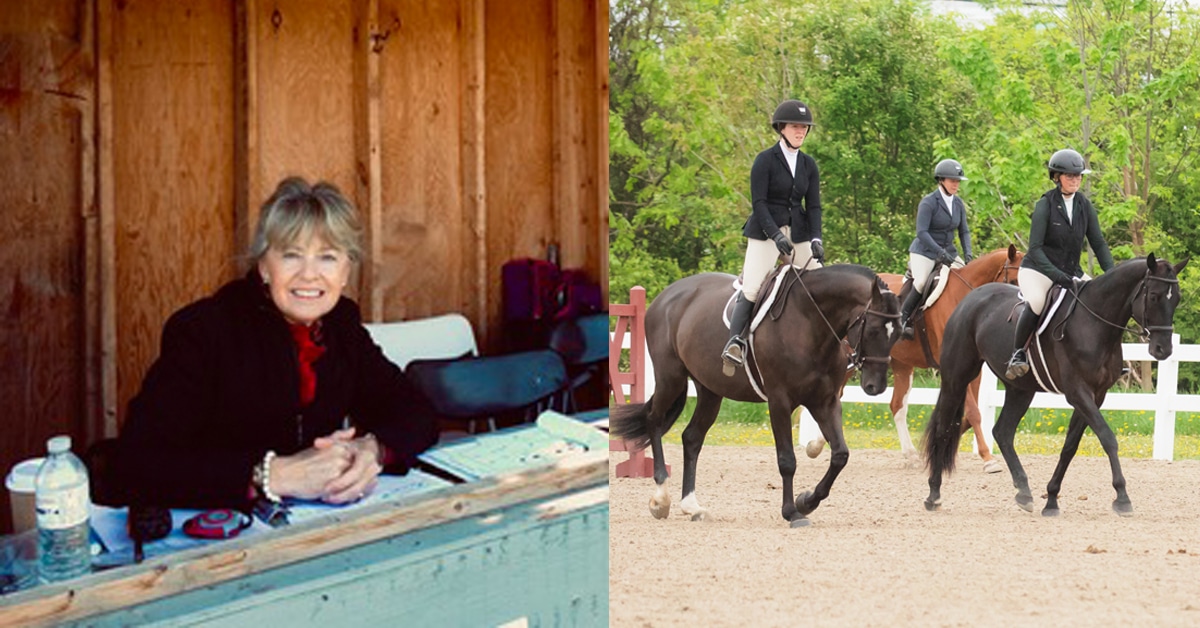A will is a document prepared during your lifetime that directs the distribution of your assets and possessions on your death. It enables you to divide your estate as you wish (subject to certain limitations), make gifts to specific individuals, provide for loved ones and friends, reduce taxes, name guardians for your children, and choose the person(s) in charge of administering your estate and distributing your assets. A will can also be used to provide for your horses, a fact that many in the horse-world do not realize.
Every person should have a valid will in place. Without a will, the laws on “intestate succession” will apply and the court will be required to choose an administrator for your estate. This takes time, during which no one will have authority over your estate. The person chosen by the court may be required to put up money with the court as security before they administer the estate. More importantly, there are no directions provided by you regarding what should be done with your property and assets. Your estate will be divided into predefined shares dictated by the laws of the province and not necessarily according to your wishes. Your property may pass to people you did not want to benefit, or in an amount more or less than you intended.
Even if you already have a will, keep reading. Your will must be reviewed periodically, as new people are born while others die, friendships end, and divorce is too common a reality. If you have to blow the dust off of your will before reading it, chances are it is time for a revision. Uncle Ben, your executor appointed in your will 20 years ago, is likely 75 years old now and ailing and you may want to give the responsibility of administering your estate to a younger relative or friend. A marriage revokes any wills made before it, except in certain limited circumstances. A divorce also effects the distribution under a will.
Making a Will
Before drafting or revising your will, the first step is to take an inventory of all of your assets and liabilities. Write down the particulars of all bank accounts including amounts, account numbers, and locations. List all RRSPs and insurance policies, including account numbers, locations, and designated beneficiaries. List all real property and your interest in it. Make the inventory as detailed as possible so that your executor, after your death, will be able to look through it and know exactly where everything you own or owe can be located and settled.
Once you have made the inventory, you should decide who will act as your executor(s). The executor of your estate is the person named in your will to administer the estate, including paying all debts, funeral expenses, taxes, and distributing the estate according to your will. If the will provides that a portion of your estate will be held in trust for a period of time, such as monies given to minor children, the executor is usually charged with administering this trust.
Most people appoint their husband or wife to this task, or a grown child, relative or close friend. It is crucial that you discuss with your executor this responsibility to ensure that he or she is willing to do the job. An executor must be at least 18 years old. There is little point in choosing an executor who is significantly older than you, as the time available for them to act in this capacity is limited (sorry, Uncle Ben.)
You should next decide who will benefit from your estate and in what manner. You can provide a person with a specific gift such as a diamond ring, or you can give general gifts such as a sum of money. You can also gift an annuity to a person that provides them with a yearly stipend from the estate, or you can provide funds to a favourite charity.
It is recommended that you ask for legal assistance when considering the distribution of your estate for two reasons: 1) the distribution of certain assets on death have tax consequences of which you should be aware; and 2) there are special rules that must be obeyed when drafting a will in order to ensure that the will is valid after your death, and the people you want to benefit from your estate will benefit in the manner you deem appropriate.
Provisions for Horses
Horses, like all animals, are considered “property” in Canada. Without specific provisions in the will to the contrary, an executor will most likely sell a valuable horse in order to convert into cash the assets of the estate for ease of distribution. Horses may be a difficult issue; unless someone is prepared to take the horse, the executor may decide to put the animal down.
You can make specific provisions for your horses in your will. As property, you can make a specific gift of your horse to a friend or relative on your death. (Note that the friend or relative should be consulted about this “gift” before your death, or it may be viewed as more of a burden.) Once gifted, the beneficiary can do what he or she likes with the “property,” so you should choose someone you believe will respect your wishes and treat your horse well.
If your horse requires special care or there are substantial expenses for his or her care, you may want to consider giving money to the beneficiary before your death or leaving them some money in your will. If you do leave money to a beneficiary in your will to maintain a horse, make sure to include provisions regarding what to do with the money if the horse dies. Does the money return to the estate, or does the beneficiary get to keep it?
The Case of Johnston’s Estate
Courts in the United States have recognized the “gift” of a pet along with a request to care for the animal. Mary Cramer Johnston’s will provided for her beneficiary to receive her two horses, Bessie and Daisy, and $14,000. The will stated that it was her “wish and direction” that the money and its income be used for the care and maintenance of her horses. Ms. Johnston became mentally incompetent before her death and an appointed committee sold the horses before she died. However, the court allowed the beneficiary to receive the $14,000. There were no conditions in the will tying the receipt of the money to the actual existence of the horses at the time of the money’s receipt.
Trusts
It is not possible to leave money directly to your horse. For one thing, your horse can’t sign cheques. However with some legal help, you can set up an annuity or trust fund for the maintenance of your horse. Each year, the person or agency chosen will be given a fund of money from your estate to provide suitable care for your animal.
A trust is a legal arrangement where a person transfers property to another person for the benefit of a third person. A trust can take effect while you are still alive or it can be created through your will. A trust document should state five things: 1) the purpose of the trust; 2) what property is governed by the trust; 3) the length of time the trust will last; 4) information to clearly identify the beneficiary; and 5) the identity of the trustee and alternative trustee. Since the trust document will be the only source of direction the trustee has as to your wishes, it is important to clearly state how you would like your pet to be maintained.
It is important to get legal advice when creating a trust since, unless carefully drafted, the trust might violate a number of legal principles of the Law of Trusts.
Beneficiary of a Trust
A trust cannot exist unless there is a beneficiary that can bring a lawsuit against the trustee to enforce the terms of the trust. A horse cannot bring a lawsuit, therefore some courts do not recognize trusts to horses – or pets in general – as valid. There are a limited number of trusts that have been held to be enforceable, which include trusts created for the care and maintenance of horses. These trusts are deemed exceptional and as such have been held to stricter rules.
Certain states in the US have enacted pet trust provisions that validate a trust for the care of a designated domestic or pet animal and the animal’s offspring.
The Case of Lyon’s Estate
A court in the United States was called upon to determine the validity of a provision in the testator’s will that stated:
“It is my expressed direction that all dogs and horses upon the farm at the time of my death, shall be kept there and cared for until their deaths. To enable my Executor to carry out this provision I authorize him to use any of the principal or income from my estate as may be required to properly maintain and operate my farms and in his sole discretion, if he deems necessary, I direct that the payment of any of the above bequests be postponed, without interest.”
The court found that the animal owner did not create a traditional trust, because no beneficiary with legal standing existed. However, the court permitted the honourary trust, because it gave effect to the intent of the owner.
The Case of the Wishart Estate
An interesting case surfaced in New Brunswick in 1992 regarding a man and his horses. Clive Wishart had four horses – Barney, Bill, Jack and King – of which he was very fond. It appeared that he was worried about the fate of his horses after his death and did not want his horses to be abused. Accordingly, in his will, he directed that his executors have his horses shot by the Royal Canadian Mounted Police and then buried. This direction to shoot the horses resulted in a strong public protest across the country. The RCMP refused to shoot the horses and the executors applied to the court for directions.
Fortunately for Barney, Bill, Jack and King, the court struck down this direction in the will. The court determined that Mr. Wishart’s intention in having the horses shot was to ensure that they not be abused after his death. As many people had Come forward to supply good homes to these horses, including the New Brunswick Society for the Prevention of Cruelty to Animals, the court felt that the testator’s intention would be properly served if the horses were well-placed and cared for. In addition, the court held that the direction to shoot the animals was contrary to public policy, because the destruction of the horses would serve no useful purpose and would waste estate assets even if carried out humanely. A reference was ordered that would ensure the placing of the horses into good homes.
Summary:
As long as you are an adult, it is important to have a will. Where you have dependents, be they children, a spouse, or a horse, you have a responsibility to ensure that your dependents are well cared for after your death. For children or a spouse, life insurance policies and other financial packages can provide the funds for this responsibility if you need some financial assistance. Insurance policies can also be put in place to care for longer-living and more expensive pets, like horses.
If you want to be certain that your horses are cared for properly, or sold, or transferred to a designated beneficiary, it is important to give explicit instructions in your will. See a lawyer to make sure your will is valid and does what you want it to do. In our western culture, the topic of death is an unpleasant one. However, peace of mind comes from being prepared. Your family and friends – as well as your horses – will thank you.
Willson Lewis LLP is a litigation law firm practising in civil litigation, employment law, construction, commercial disputes, family law, tax disputes, and equine law. Catherine Willson is a partner at Willson Lewis LLP (www.willsonlewis.com) with expertise in Equine Law. The legal information provided in this article is based on the laws of Ontario. If you find yourself in a situation to which this article may apply, please consult a lawyer before acting or relying on any of the statements made herein.
The Latest










